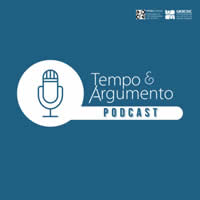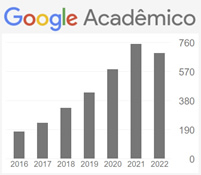A historian woman between the living and the dead; between the North and the South
DOI:
https://doi.org/10.5965/2175180316432024e0101Keywords:
Battle of Algiers, enforced disappearances, memory politicsAbstract
The Battle of Algiers, more accurately referred to by historians as “the great repression of Algiers” (Gilbert Meynier), has become a landmark event, symbolizing, for a part of the world, the Algerian War of Independence. Along with my colleague Fabrice Riceputi, I conduct a collaborative historical project on forced disappearances during the Battle of Algiers. On the project’s website, we have created a page for each identified abductee and issued a call for families to confirm the fate of everyone. Since then, we have been contacted by dozens of families: sometimes they send us a person's photos, provide written testimonies, or send us documents they have kept. In our investigations as historians of the present time, we take on roles that are not always inherent to our subject. To put it another way, we push the boundaries of our field, navigating between the living and the dead. This is the focus of this article.
Downloads
References
ANDERSON, David. Histories of the hanged: the dirty war in Kenya and the end of Empire. New York: W. W. Norton, 2005. 448 p.
BEAUGÉ, Florence. Algérie, une guerre sans gloire: histoire d’une enquête. Paris: Calmann-Lévy, 2005. 299 p.
BRANCHE, Raphaëlle. La torture et l’armée pendant la Guerre d’Algérie: 1954-1962. Paris: Gallimard, 2001. 474 p.
CAPDEVILA, Luc; LANGUE, Frédérique. Entre mémoire collective et histoire officielle: l’histoire du temps présent en Amérique latine. Rennes: Presses universitaires de Rennes, 2009. 282 p.
CATELA, Ludmila da Silva. Sin cuerpo, sin tumba: memorias sobre una muerte inconclusa. Historia, Antropología y Fuentes Orales, [Barcelona], n. 20, p. 87 104, 1998.
CORNATON, Michel. Les Camps de regroupement de la guerre d’Algérie. Saihi: Alger, 2013.
DEKKER, Jennifer. Intensifying conflict by destroying archives: the case of the Truth and Reconciliation Commission of Canada. La Gazette des archives, [France], v. 255, n. 3, p. 53 66, 2019.
ELKINS, Caroline. Britain’s Gulag: the brutal end of Empire in Kenya. [S. l.]: Vintage Digital, 2023. 479 p.
ELKINS, Caroline. Imperial reckoning: the untold story of Britain’s gulag in Kenya. [S. l.]: Henry Holt, 2010. 496 p.
[E-MAIL ANONYME]. Destinataire: Malika Rahal. [Paris], 2012. 1 E-mail.
GATTI, Gabriel. Surviving forced disappearance in Argentina and Uruguay: identity and meaning. 1st. ed. New York: Palgrave Macmillan, 2014. (Memory politics and transitional justice).
MILLOY, John S. A national crime: the Canadian government and the residential school system. 2e éd. Manitoba: University of Manitoba Press, 2017. 464 p.
RAHAL, Malika; RICEPUTI, Fabrice. La disparition forcée durant la Guerre d’Indépendance algérienne: le projet Mille autres, ou les disparus de la “bataille d’Alger” (1957). Annales. Histoire, Sciences Sociales, [Paris], 77e année, n. 2, p. 263 289, 2022.
RAHAL, Malika. Algérie 1962: une histoire populaire. Paris: La Découverte-Barzakh, 2022a. 496 p.
RAHAL, Malika. Ali Boumendjel, 1919-1957: une affaire française, une histoire algérienne. Paris: la Découverte, 2022b. 324 p. (La Découverte-poche).
RANALLETTI, Mario. Faire disparaître une deuxième fois les « disparus »: archives de la dictature et travail de l’historien en Argentine. Écrire l’histoire. Histoire, Littérature, Esthétique, [Paris], n. 13 14, p. 137 148, 10 Oct. 2014.
ROBIN, Marie-Monique. Escadrons de la mort, l’école française. [S. l.]: La Découverte, 2008. 453 p.
RUBENSTEIN, Jérémy. Terreur et séduction: une histoire mondiale de la doctrine de la guerre révolutionnaire. Paris: La Découverte, 2022.
SINGARAVÉLOU, Pierre (ed.). Colonisations: notre histoire: notre histoire. Paris: Seuil, 2023. 720 p.
STORA, Benjamin. La gangrène et l’oubli. Paris: La Découverte, 1998. 376 p.
VIDAL-NAQUET, Pierre. Affaire Audin. Paris: Éditions de Minuit, 1958. 103 p.
Downloads
Published
How to Cite
Issue
Section
License
Copyright (c) 2024 Tempo e Argumento

This work is licensed under a Creative Commons Attribution-NonCommercial 4.0 International License.
The articles published by the magazine are for free use, destined for educational purposes and not commercial. The copyrights are all granted to the magazine. The articles whose authors are identified represent the expressed opinion of its authors and not the official position of the Tempo e Argumento magazine or of the Postgraduate Program in History of the Universidade do Estado de Santa Catarina.




